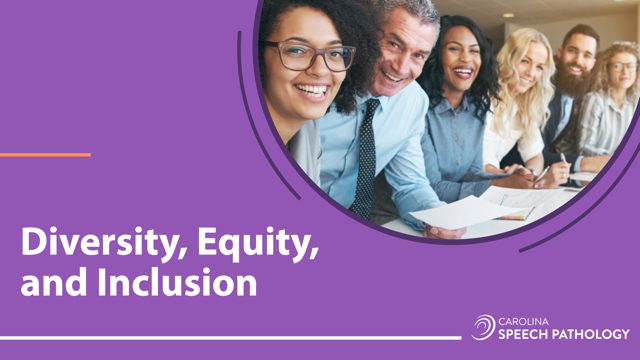“People are opting out of vital conversation about diversity and inclusivity because they fear looking wrong, saying something wrong, or being wrong. Choosing our own comfort over hard conversations is the epitome of privilege, and it corrodes trust and moves us away from meaningful and lasting change.” Brene´ Brown, Dare to Lead: Brave Work. Tough Conversations. Whole Hearts.
When we get a referral to see a patient, we do a thorough chart review and a bang up bedside swallow assessment which includes a cranial nerve exam. When our patient shows symptoms of dysphagia, we explain to them that imaging is warranted to determine what physiological deficits are present so that we can initiate dysphagia intervention. The patient agrees to participate in dysphagia imaging. Following the study, a modified diet may be recommended, or possibly a maneuver, to eliminate airway invasion while we work with the patient to improve overall function. When we share this information, the patient says, “no way!” What went wrong? Perhaps using more effective communication based on our patient’s views, beliefs, and values would have bridged the gap between our goals and our patient’s expectations of care. If we make recommendations that do not fit within our patients’ cultural values and beliefs, we are not serving them well.
According to ASHA, cultural responsiveness includes understanding and responding to cultural variables, as well as valuing diversity. This includes working toward improving one’s understanding of culture and working toward creating safe, diverse spaces. Cultural competence is a process of ongoing self-reflection and self-evolution to be open to others’ values/beliefs, as well as expressing one’s own values/beliefs. Cultural humility includes examining one’s own beliefs and identities to better understand those of others. All of these concepts involve constant self-assessment and a lifetime of learning. ASHA offers Cultural Competence Check Ins , which is a great place to start.
Cultural responsiveness is not only important for us as clinicians, but is also important for us as coworkers. In order to foster a safe and supportive workspace for our colleagues, we must feel comfortable having respectful conversations about differences in experiences, perspectives, and preferences. The field of speech-language pathology (SLP) is a field with limited diversity, as our clinicians are predominately white and female. The 2021 ASHA member affiliate profile indicated that only 8.7% of ASHA members and affiliates identify as being from an underrepresented racial group, whereas data from the 2020 U.S. Census indicated that 38.4% of the population identifies as being from an underrepresented group. There is movement to improve cultural representation in our field. One way ASHA aims to do this is by requiring that two of the thirty continuing education hours required to complete our certification maintenance every three years be devoted to Diversity, Equity, and Inclusion (DEI).
We are proud to offer you a brand new self-study course that meets ASHA’s guidelines for DEI continuing education, Building Culturally Responsive Care for the Medical SLP. This course is taught by Dr. Leslie Johnson, Ph.D, CCC-SLP and Dr. Kellyn Hall, Ph.D., CCC-SLP both from North Carolina Central University. These two also authored this wonderful article in ASHA’s Perspectives Journal, The Three CCCs of Dysphagia Management : Culturally Competent Care, which is a great read for those of us working in the medical setting.
We are far from where we need to be, but Carolina Speech Pathology is here for this journey toward offering culturally responsive care and improving diversity, equity, and inclusion within our field.

